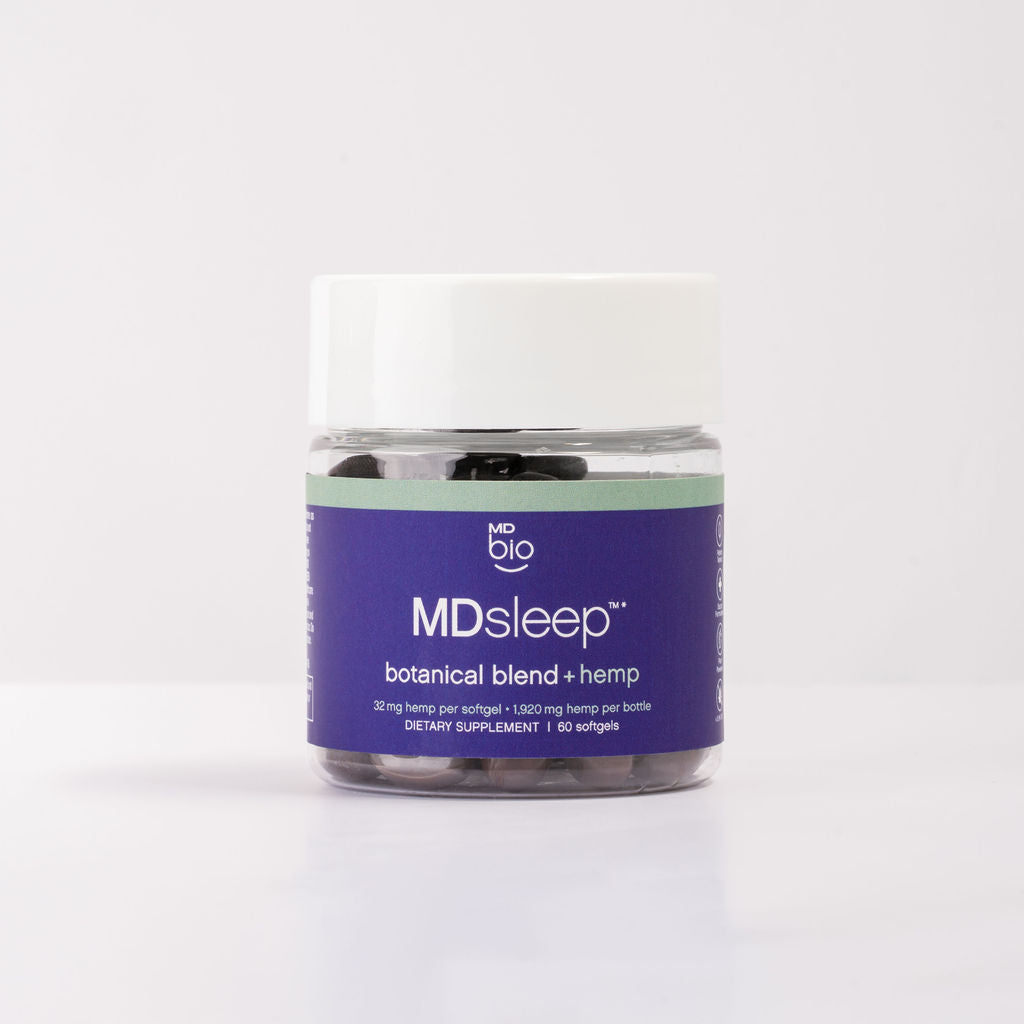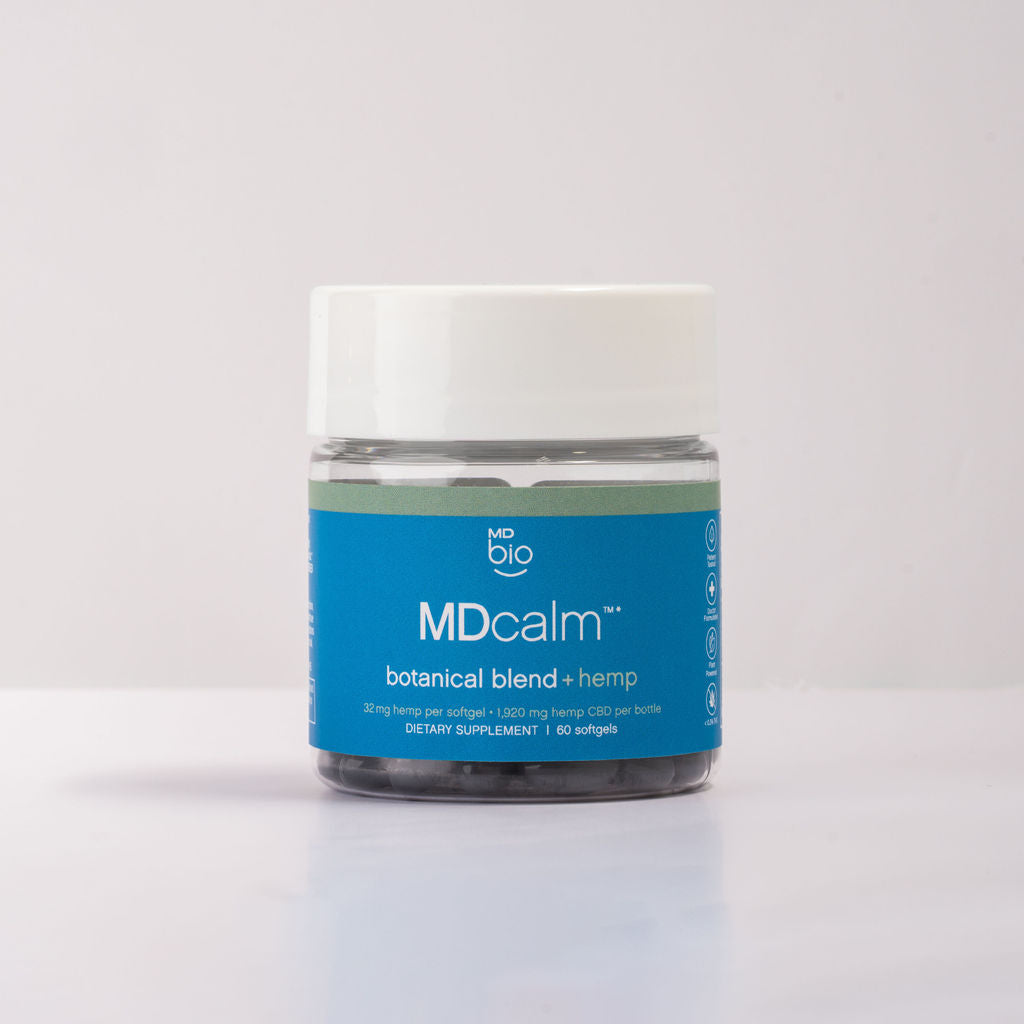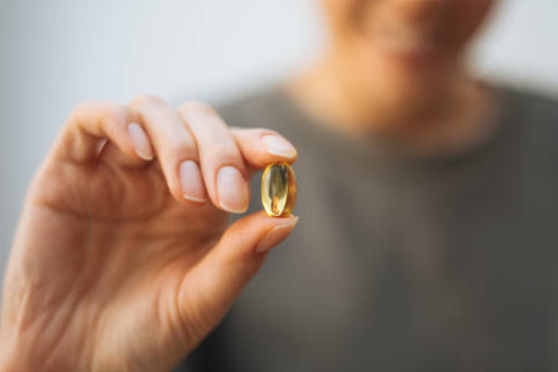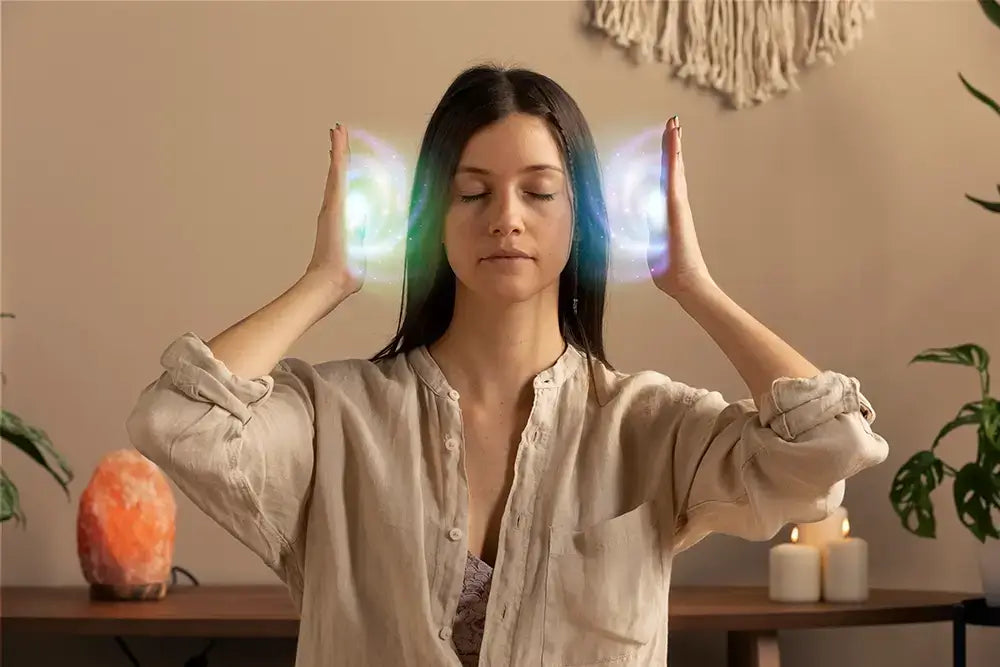
If you're interested in herbs for lucid dreaming, you may have come across the valerian root. This root is commonly used in naturopathic medicine and has various health benefits. Valerian root is an herb used for centuries in traditional medicine.
Naturopathic medicine commonly uses this root. While it's most well-known for improving sleep quality, valerian root can also help reduce anxiety and promote relaxation. This article will look closely at the valerian root extract for sleep benefits.
What Is Valerian Root?
Valerian root is an herbal remedy used for centuries to treat various ailments. The roots and leaves of the valerian plant get harvested to make medicine. The root gets harvested from the valerian plant, which is native to Europe and Asia.
Valerian root is most common for sleep disorders, anxiety, and nervousness. It is also sometimes used for headaches, migraines, stomach cramps, and other types of pain. Valerian may effectively treat insomnia, anxiety, hot flashes during menopause, and muscle pain. In addition, some people believe that the herb can also help to induce lucid dreams.
The active ingredient in valerian root is valerenic acid, which binds to gamma-aminobutyric acid (GABA) receptors in the brain, resulting in a calming effect. GABA is a neurotransmitter that helps to regulate nerve cell activity. Research has linked low levels of GABA with anxiety and sleep disorders.
Valerian Root is available in capsules, tablets, tinctures, extracts, and teas. The herb can also be smoked or inhaled as an aromatherapy treatment.
It may take a few weeks for the full effects of valerian to take effect. Valerian is generally considered safe for most people when taken at recommended doses for short periods (up to four weeks) with few side effects. The most common side effects include:
- Gastrointestinal Upset
- Daytime drowsiness
- Headache
- Dizziness
- Itchiness
- Dry Mouth
If these side effects occur, they usually go away within a few days. In addition, health professionals recommend avoiding Valerian root during pregnancy or breastfeeding. You should also be aware that there's no evidence to support claims that the herb is addictive or habit-forming.
A review of various studies found valerian root effectively improved sleep quality in people with insomnia. Another review looked at the use of the herb for anxiety and found that it may help reduce symptoms.
Who Should Avoid Valerian Root?
Despite its long history of use, there are some concerns about the chemicals in the herb. Health professionals suspect the chemicals in valerian root are harmful to unborn babies or breastfed newborns.
The European Medicines Agency has recommended that pregnant women and breastfeeding mothers avoid using valerian root. In addition, the American Herbal Products Association has classified valerian root as unsafe for pregnant women and breastfeeding mothers.
People with liver or kidney disease should be cautious when using Valerian root. In addition, people taking medications that affect the central nervous system, such as sedatives or antidepressants, should also remain cautious.
Valerian root could have a profound effect on the way your body metabolizes medications. If you take any medicine processed by the cytochrome enzyme (CYP450) in your liver, be aware that it could potentially interfere with the medicine's effectiveness.
CYP450 is a group of enzymes responsible for breaking down many kinds of drugs and chemicals in the body. Valerian root is known to inhibit some of these enzymes, which could lead to higher levels of certain medications in your blood.
You should avoid taking valerian root if you take any medication CYP450 metabolizes. These medications include:
- Antidepressants
- Anti-anxiety medications
- Allergy medications
- Cancer medications
- Sleeping pills
- Antifungal drugs
- Statin drugs
Valerian Root History
The herb is native to Europe, Asia, and North America and has been a remedy in Traditional Chinese Medicine and Ayurveda for thousands of years. It has a long history of use for treating insomnia and anxiety. The German Commission E approved the herb as a treatment for sleeping disorders based on nervous conditions in 1984.
The first recorded use of valerian root as a medicine was in ancient Greece, where it was a prescription as a sleep aid. The Romans and Egyptians also used the herb for its sedative effects. In the Middle Ages, it was also helpful in treating various conditions, including headaches, stomach pain, and nervousness.
Valerian Root became popular in North America in the 19th century. Dr. Samuel Thomson introduced the herb and was a pioneer in the use of herbal medicines. Thomson used it to treat various conditions, including colds, flu, and indigestion.
Valerian was a sleep aid and anxiolytic included in the U.S. National Formulary until the 1940s. When more strong pharmacological drugs became available, valerian root became less frequent but is still used today for treating insomnia and anxiety.
It is also sometimes used for other conditions, such as muscle pain, menstrual cramps, and attention deficit hyperactivity disorder (ADHD). In addition, some people use valerian root to help with withdrawal symptoms from benzodiazepines or other sedative drugs and in people trying to quit smoking or drinking.
In recent years, the herb has become popular among holistic health practitioners and naturopathic doctors as a natural alternative to prescription medications.
Herbs for Lucid Dreaming
Valerian root may be an option if you're looking for an herb that can help with lucid dreaming. This herb can promote relaxation and improve the quality of sleep. While there's no guarantee that it will work for everyone, some people find it a beneficial ingredient in conjunction with an AChE Inhibitor for achieving lucidity during dream states.
It has been used for centuries to induce sleep and dreams. The herb works by increasing levels of (GABA) in the brain. This neurotransmitter regulates slumber and relaxation and promotes a calming effect on the nervous system.
There are several ways to use valerian root to increase your chances of lucid dreams:
- Some people use it to induce lucid dreams by taking it before bed. You can make tea out of the ingredient or purchase a liquid form of the herb.
- Another way to use it is to put a few drops of the liquid form on your pillow before bed.
- Others add it to their bedtime routine by drinking a tincture made with the herb or using a supplement.
For valerian root to be effective in helping you have lucid dreams, it is essential to use it regularly. If you do not use it consistently, the effects will wear off, and you may not see any benefits.
The most important thing to remember if you want to use valerian root for lucid dreaming is to combine it with other potent dream inhibitors such as passion flower, hops, chamomile, or lemon balm. It will help maximize the herb's effects and help you achieve lucid dreams.
Many people have successfully used valerian root as a dream herb for lucid dreaming. If you want to experience increased chances of having lucid dreams, then adding this herb to your nightly routine is what you need.
Valerian Root Dreams
If you're like most people, you probably don't think much about your dreams. You might only remember them if they're particularly vivid or strange. However, dreams are a normal and essential part of sleep.
They help your brain process information and sort through memories. Dreams can also be a way for your subconscious to work through problems or issues you're dealing with in your waking life.
Valerian root helps sleep because of its sedative and anxiolytic effects. A recent study found that valerian root extracts may reduce insomnia symptoms. It suggests valerian root may be a promising alternative treatment for insomnia.
However, more research would be helpful to confirm these findings. And if you suffer from nightmares, you may wonder if the herb can help you. The answer is yes!
Recent studies have shown this natural remedy may effectively reduce nightmares' frequency and severity. So, consider taking the ingredient to achieve peaceful valerian root dreams. These herbal remedies may also improve your sleep and help you get a better night's sleep by reducing anxiety and promoting relaxation.
In addition, some research suggests that it may help improve dream recall and increase the clarity of dreams. The herb is safe for most people when used in the short term. However, if you're interested in trying valerian root to improve your dream recall or the quality of your dreams, talk to your healthcare provider first to see if it's right for you.
Valerian Root’s association with Lucid Dreams
You may have heard of valerian root as a natural sleep aid. But did you know this humble herb can also help induce lucid dreaming? Combined with other powerful dream inhibitors, it can be a potent supplement for those interested in exploring the world of lucid dreaming.
It is first necessary to know what lucid dreaming is to understand how the valerian root may help induce it. Lucid dreaming is a state of consciousness in which the dreamer is aware that they are dreaming. This awareness allows the dreamer to take control of the dreamscape and explore it in whatever way they see fit.
Lucid dreams can be induced by various means, including meditation, hypnosis, and sleep deprivation. However, herbs and supplements are the most effective methods for generating lucid dreams.
Valerian root is one such herb shown to be effective in inducing lucid dreams when combined with other inhibitors. That is because it helps with dream recall, the first step in achieving dream lucidity.
When taken before bed, valerian root helps to relax the mind and body, making it easier to fall asleep. Once asleep, the body enters into a state known as REM (rapid eye movement) sleep. It is during REM sleep that our bodies can repair and regenerate cells.
It is also during REM sleep that we experience most of our dreams. By taking valerian root before bed, you are increasing your chances of entering into REM sleep and thus having a greater chance of having a vivid and memorable dream that you can later recall upon waking up.
In addition to increasing the odds of lucid dreams, valerian root also helps prolong REM sleep duration. It means that your lucid dreams will also be longer and more detailed if you become aware that you are dreaming while asleep.
Keep a few things in mind if you're interested in valerian root and lucid dreams.
- Firstly, avoid consuming alcohol or other drugs as it may intensify their effects.
- Secondly, start with a lower dose and gradually increase it over time until you find the best amount.
- And finally, consult with your doctor before taking any new supplement, especially if you have pre-existing medical conditions or are taking other medication regularly.
There is some scientific evidence to support the use of valerian for dream enhancement. For example, a study published in the Journal of Ethnopharmacology found that valerian increased the frequency of lucid dreams.
The study participants took a valerian supplement for two weeks and then recorded their dreams in a journal. The researchers found that the participants who took the valerian supplement were significantly more likely to have lucid dreams than those who did not.
While the evidence is promising, more research is needed to confirm the efficacy of valerian for dream enhancement. Additionally, it is essential to combine valerian with other dream enhancement techniques, such as meditation and visualization, for the best results.
Final Take On Valerian Root and Lucid Dreams
Now that you have learned about the potential benefits and side effects of valerian root for sleep, it is up to you to decide whether or not this natural remedy is proper for you. Today, science is beginning to catch up, and some evidence supports the herb's efficacy for sleep and dream recall.
Remember to speak with your healthcare provider before beginning any new supplement, especially if you are pregnant or breastfeeding, have a medical condition, or take medication.
The herb may be worth trying if you struggle with insomnia or want to improve your sleep. This herb is generally safe with few side effects, making it a good option for those looking for a natural treatment for insomnia. Browse our selection of products if you require therapeutic alternatives to harsh pharmaceutical drugs.
- Uncover the synergy and differences between Ashwagandha and Valerian Root in our latest blog post: Ashwagandha and Valerian Root: Synergy and Differences.
- Uncover the link between anxiety and dizziness - Read more at Can Anxiety Cause Dizziness? The Cause & Effect.
- Explore our comprehensive guide on 6 insomnia herbs - natural remedies that aid in promoting restful sleep and overcoming insomnia
- Discover the Power of Nature: Explore our latest blog on '6 Herbal Remedies for Pain Relief' and unlock the secrets of natural pain relievers that really work!












